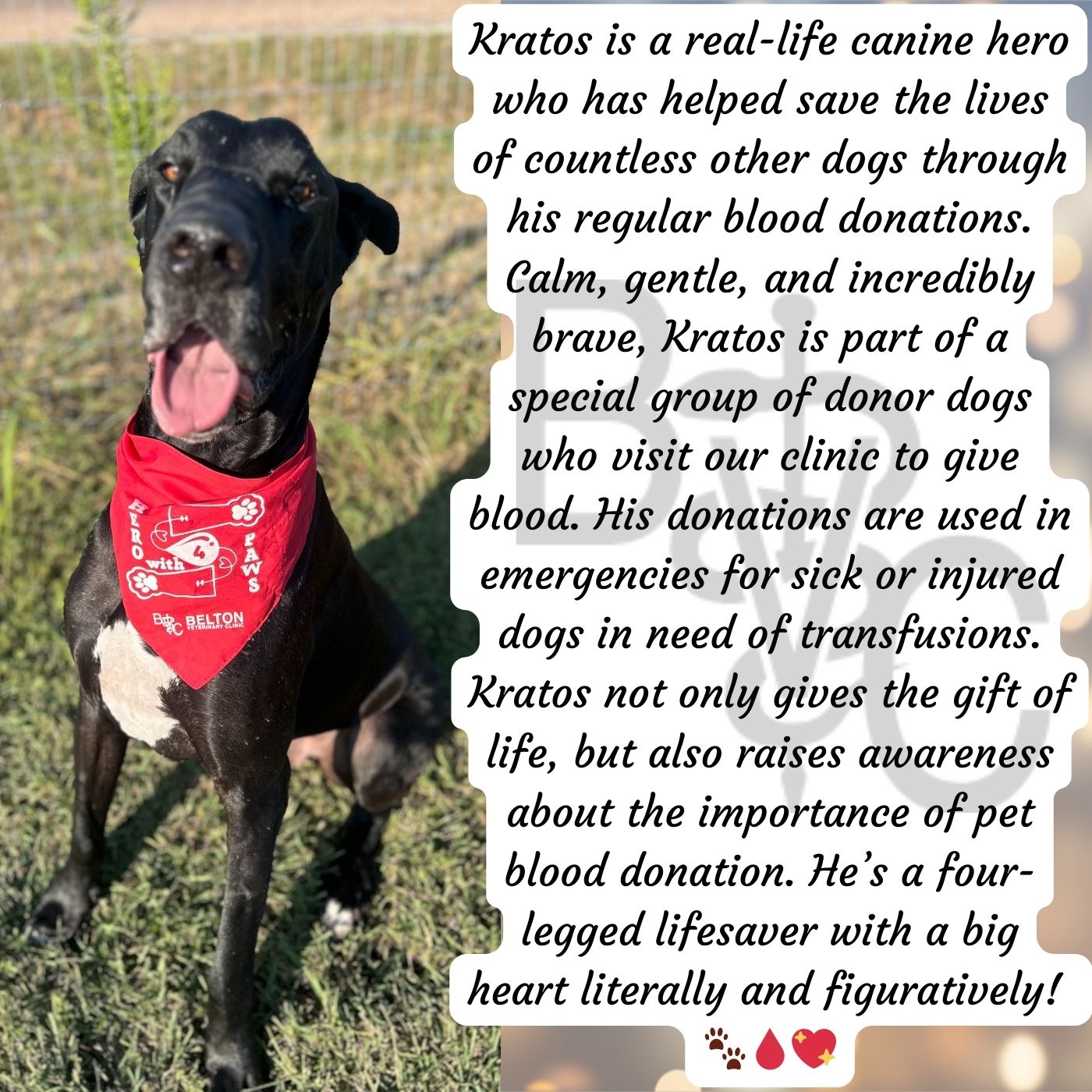Meet Slink, he is a spunky 7-year-old longhaired Dachshund, who came to Belton Veterinary Clinic after his family noticed unusual bruising on his belly and redness in his eyes. At first, these signs seemed puzzling—he hadn’t been injured, and was otherwise acting like his normal self. But bloodwork quickly revealed a very serious condition: his platelet count, the blood cells responsible for clotting and preventing bleeding, was dangerously low.
What Is IMTP?
Slink was diagnosed with immune-mediated thrombocytopenia (IMTP), a disease where the immune system mistakenly targets and destroys its own platelets. Without enough platelets, even minor bumps or normal daily activity can lead to dangerous internal or external bleeding. In Slink’s case, he developed bruising and even gastrointestinal bleeding, which caused his red blood cell levels to drop. Slink was initially discharged from the hospital and started on high dose steroids to suppress his immune system and stop his body from attacking his platelets.

Emergency Care
A few days later, Slink returned to recheck his bloodwork which showed minimal improvement of his platelet count and Slink had become anemic and was losing his red blood cells. Later that day, Slink started having large amounts of blood in his stool, evidence that he was bleeding into his gastrointestinal tract.


Because of the risk of life-threatening bleeding, Slink required hospitalization and a life-saving blood transfusion. The transfusion not only replaced his lost red blood cells but also provided platelets to help stabilize his condition and stop his bleeding. We closely monitored him for complications, and frequently repeated blood panels to check his progress. Thankfully, Slink responded well.

Going Home
When Slink was discharged, he went home on a carefully managed medication plan. He needed strict cage rest to prevent accidental injuries that could cause bleeding, and his family was given clear instructions on what warning signs to watch for: nosebleeds, blood in stool or urine, sudden weakness, or collapse.
Recovery and Monitoring
Over the next several weeks, Slink returned for regular checkups and blood tests. These visits allowed us to track his platelet counts and adjust his medications. As the weeks went by, his bruising faded, his lab results continued to improve, and his energy returned. Eventually, his steroid dose was slowly tapered down to reduce side effects, while still keeping his disease under control.
A Bright Outlook
IMTP is a serious condition, and not every dog recovers as well as Slink has. But with quick action, close monitoring, and a committed family, Slink’s story shows that many dogs can fight this disease and return to living full, happy lives.
The Importance of Blood Donation
Slink’s recovery was only possible because another dog’s donated blood was available when he needed it most. Just like in human medicine, our clinic depends on blood donors to make it possible to save lives during critical emergencies.
If you are interested in your dogs participating in our blood donation program, they must meet certain criteria
- Friendly and easy to handle
- Weigh at least 50lbs.
- Male or spayed female that has never been pregnant
- Between 1 and 6 years old
- Current on vaccinations
- On heartworm preventative

Please inquire if you would like your dog to participate in this life saving program with Belton Veterinary Clinic contact us at 254-939-1884!
